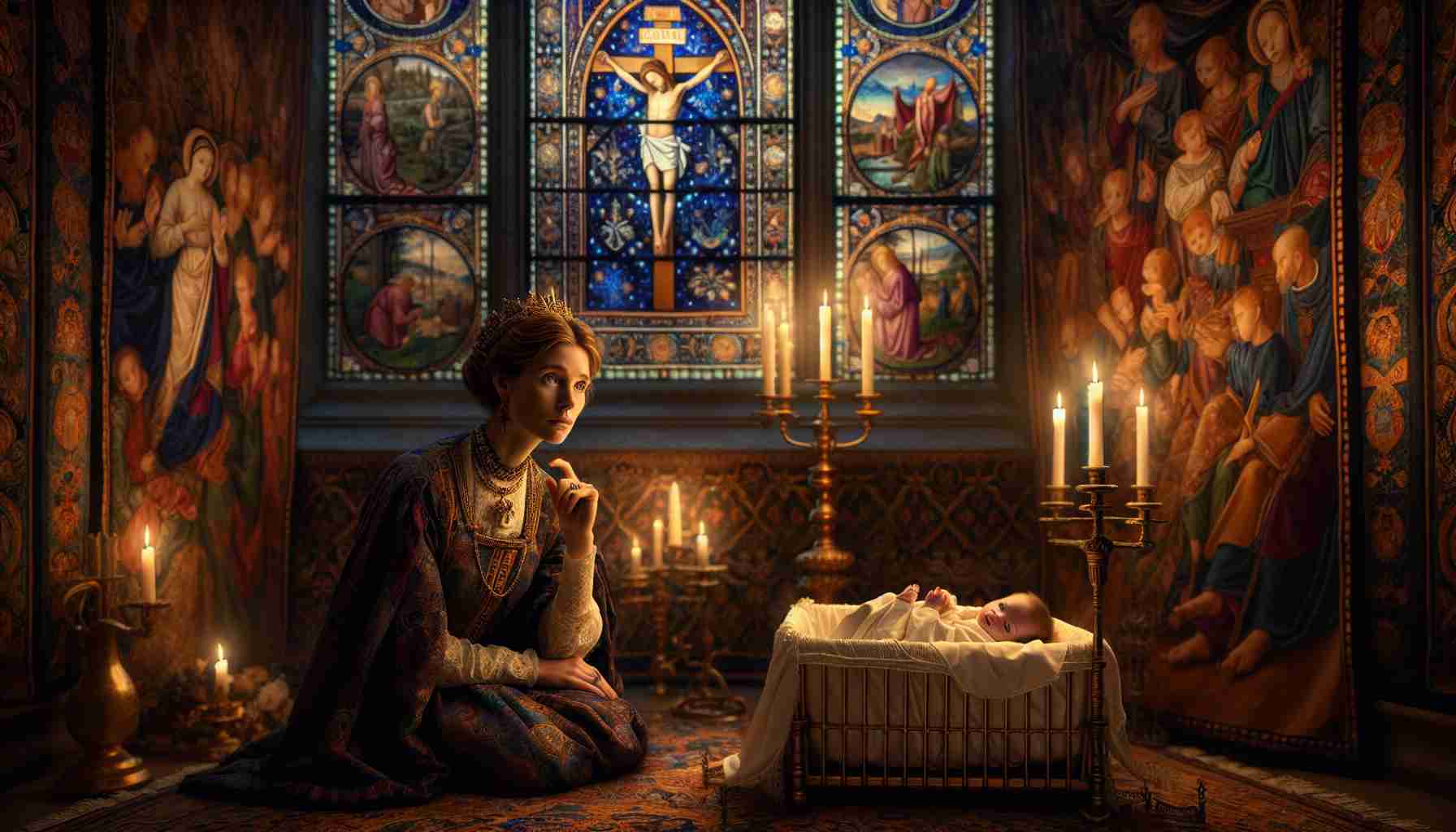

Under leaden skies clotted with the smoke of iron forges, the coronation bells of Westminster pealed like war drums played by angels. England had welcomed its new sovereign—Edward, first of his name, hammer of Wales, and future scourge of Scotland. But on the morning he was born, June 17, 1239, all was still.
In the chamber soaked with the smells of birth and incense, Queen Eleanor of Provence wept quietly beneath the gaze of painted saints. Her child had come into the world not with a cry, but with a clenched jaw and deep, searching eyes—as if he already saw the burdens of the crown before his head had touched it.
The scribes would record him later by his many names: Longshanks, Plantagenet, Crusader King. But long before campaigns and conquest, Edward was fed on the tenets of the Psalms. His tutors read Psalm 72 aloud as both promise and prophecy: “Yea, all kings shall fall down before him: all nations shall serve him.”
The boy believed it.
Years passed, years sharpened by swordplay and council chambers, wax seals and Latin psalters. Edward’s faith grew with his frame—strong, tall, unyielding. Priests spoke of his piety with a mix of admiration and caution. He fasted long, prayed hard, and when he was of age, he vowed to carry the cross East—not for glory, he said, but to safeguard Jerusalem, the city where God had crowned His Son with thorns.
The Ninth Crusade found Edward in Acre in 1271, the last jewel of Christian dominion in the Holy Land. The city groaned like a rusted hinge beneath Saracen assault, and Edward stood atop its walls with flame in his eyes and a cross pressed to his lips. Though his forces were few, he led them with conviction, his white surcoat stiff with desert dust and dried blood.
At night, he knelt before the relics in St. Andrew’s Chapel, its walls mosaicked with shards of shattered iconography—fragments of a faith under siege. There, among dying candles, he was stabbed by an assassin, a poisoned dagger meant to silence the lion before he roared. Survival was uncertain. But while fever twisted his body, scripture steadied his mind.
“If the Lord delights in a man’s way,” whispered a monk at his bedside, quoting Psalm 37, “He makes his steps firm.”
When Edward returned to England, his skin had healed but not his resolve. He governed like a man with fire in his marrow. Castles rose like teeth in Welsh hills. Laws were etched into parchment and precedent, many invoking Christian order—proclamations against corruption in the Church, but also painful edicts against Jews, expelling them in 1290 after centuries of uneasy coexistence.
In the shadow of Westminster Abbey, he built the chapel of St. Stephen with stone quarried by his faith. There, stained glass caught the morning sun and broke it into divine radiance across the altar. To walk its nave was to feel one’s heart judged.
But every king's shadow grows long.
Edward's rule bound England tighter, but not without blood. The conquest of Wales ended with dead princes and bardic silence. Scotland’s resistance, too, rose and fell beneath his iron hand. Some said he saw himself as a new David: chosen, sometimes cruel, but always in covenant with God.
Toward the end of his reign, Edward visited Lincoln Cathedral, kneeling beneath the bones of St. Hugh. The air held a cool echo, reverent and ancient. Upward the nave lifted like a prayer, ribbed vaults pulling men's eyes—and thoughts—toward heaven. There, among scholars and masons, Edward confessed regret: not for war, but for the souls lost to it.
On July 7, 1307, on campaign in the north, Edward died in sight of Scotland, still grasping the cross of his crusader oath, never reaching Jerusalem again. His body, armored and interred in Westminster, bore the unyielding epitaph: “Edwardus Primus Scotorum Malleus. Pactum Serva.”
A king. A crusader. But beneath steel and stone, a man who believed rulers should bend first to God before nations bent to them.
Centuries later, in the hush of England's churches and courts, echoes of Edward’s faith linger still.
As Psalm 72 promised and Edward clung to: “He shall have dominion also from sea to sea… yea, all kings shall fall down before him: all nations shall serve him.”
But the Psalm spoke not of Edward.
It spoke of the greater King to come.